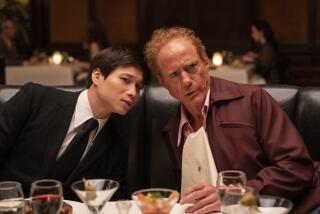Viet Lesson: Make Trade, Not War
As a Vietnam veteran and former prisoner of war, I remember the horrors of the battlefield and understand how difficult healing can be. In 1997, when I returned to Vietnam as the U.S. ambassador and was chauffeured to my destinations, I could not forget the times when I had traveled those same roads in the back of a prison truck, handcuffed, shackled, blindfolded and often gagged. Nor did I forget the days when I only thought of Vietnam as a war, not a country.
But I soon realized that I did not need to forget the past. I simply needed to focus on a different and better future.
Today, U.S. military forces are fighting on a new battlefield in Afghanistan, and I am pleased to see that some of the lessons I learned in dealing with my past are being put into practice there. While the United States and its allies have properly committed to fight our common terrorist enemies, we understand that it is equally important to make sure Afghanistan is provided with the tools necessary to succeed once the war is over. The U.S. commitment to help rebuild infrastructure, support the formation of a new government and feed the hungry people of Afghanistan is critical.
As in Vietnam, Afghanistan’s future success may depend on whether its people choose to embrace some of the values that Americans hold dear, including a robust free market economy, respect for individual rights and democratic principles. During my tenure as ambassador, I often made clear to the Vietnamese that a free market is an essential element of a free nation.
It took more than 20 years for the U.S. to actively begin reconciliation with Vietnam. That was far too long.
The recent implementation of the bilateral trade agreement between the U.S and Vietnam has the potential to make up for some of the time lost. The agreement will help to improve the quality of life for every Vietnamese citizen and sends a positive signal to American companies that Vietnam is open for business.
There is an increasing demand for Western goods and services throughout Vietnam. The commercial potential for American companies is enormous. This demand can partly be attributed to the extraordinary demographics of Vietnam: half of its 80 million people are under 25. This young, literate and hard-working population provides an ideal consumer base for American businesses.
Vietnam possesses enormous natural resources as well. It is the second largest exporter of rice in the world; coffee and quality marine products also have become lucrative exports. Petroleum is the country’s largest monetary export, and it has vast quantities of energy products and minerals that have yet to be fully developed.
Because Vietnam was not completely integrated into the global market, it did not greatly suffer the effects of the Asian financial crisis in the 1990s. Vietnam’s currency still is not fully convertible, and it only recently opened its first stock market. With the Asian economies somewhat on the rebound, Vietnam’s economy is starting to take off. Vietnam recently was recognized by a poll of business leaders as the safest place to do business in Asia.
The vast untapped market in Vietnam could be an important boost to the U.S. economy.
Major political, economic and cultural change has taken place over the past 15 years in Vietnam, and the transition in each of these sectors continues. The changes have been aided by Washington’s policy of engagement, signaled by the termination of the economic embargo in 1994 and the establishment of diplomatic relations in 1995.
Through candid dialogue, mutual respect and a strong commitment to succeed by the leaders of both countries, Vietnam and the United States have become friends again. Vietnam has become a respected and peaceful member of the community of nations--finally a country, not a war, in the minds of people around the world.
Our experience in Vietnam proves that engagement works. If we draw from the lessons we learned in Vietnam, there is a real hope for a stable, free and future-oriented new nation of Afghanistan.
Pete Peterson is president of a business-consulting firm based in Tallahassee, Fla., and Washington.


